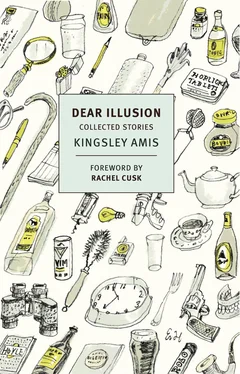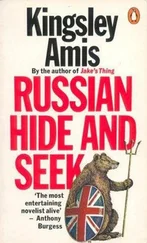‘Because unless you feel quite wholehearted about it I think I ought to find someone who does to represent me. I’m not trying to hold a pistol to your head.’
Much, said Adrian to himself. Out loud he said, ‘I haven’t the slightest reservation. I’ve never been in any doubt about the quality of your work.’ The second part of that was not quite true. At least twice in his nineteen years with Parkes & Richards it had crossed his mind, albeit without lingering there, that against appearances there might be something to be said for Jack’s work. After all, the first novel back in 1958 had been quite readable for a global best seller.
‘One of the young fellows at Fortuitous Millennium,’ said Brownlow now, ‘was telling me they’d give me substantially better paperback terms there than what you managed to get me for my last one.’
‘Was that Mark Skinner?’
Brownlow hesitated. ‘Could have been, but I never really caught the name properly.’
‘I think at your time of life, Jack, you’d do well to consider the advantages of sticking to the devil you know.’
The devil Brownlow knew, a small firm specializing chiefly in military history and reminiscences, had had the luck to publish that runaway success of 1958, and continued to publish him now he broke a little better or a little worse than even with his chronicles of elderly daydreams. To be sure, he was still something of a name, a quality that also helped to account for his continuance in the Parkes & Richards string. But both publisher and agent were also unwilling, out of compassion or cowardice, to bring him up against the fact that at the age of sixty-three he had ceased for ever to be the kind of literary property he had once been.
Brownlow had at any rate not cared for the last remark, had possibly sensed something of what lay behind it, but he had hardly begun the long process of asking for clarification when a nearby telephone purred. Adrian snatched it up with simulated annoyance.
‘Yes. Yes, Tania. Oh, not again. How long ago? Well, I don’t remember meeting him. Oh yes. All right.’ In the next ten seconds Adrian got his face to run quickly through some of its less welcoming expressions. ‘Mr Pennistone? No, that’s all right. Well, if I said anything at all I meant it, including that. No, I remember it well. Your book is unpublishable , and when I say unpublishable I know what I’m… I’m sorry, but I happen to have Jack Brownlow with me at the moment, so perhaps you’ll understand if I… Very well, if you say so. Of course.’ Clunk.
However this performance might have affected the unlucky Pennistone, it worked wonders for Brownlow, who did nothing more than extract from Adrian a promise to spend some thought and research on the possibility of a change of publisher, with special reference to an improved paperback deal. So all was as well as it could be.
‘Can I see you put it in?’ asked Brownlow finally.
This question surprised Adrian less than it might have done because he had heard it in these circumstances before. What was to be put in was the xeroxed typescript Brownlow had brought with him, and what this was to be put into was the firm’s vaults for safekeeping.
‘It’s silly of me,’ he said without encountering any opposition, ‘but until that’s done I can’t help worrying that some joker might steal my only copy. Now there’s one in here too I don’t care if my house burns down. Most authors have their funny little ways and I suppose that’s mine.’
After Brownlow had gone, Adrian thought for a time about him and his funny little way. It could be taken as showing a relentless determination to stay in touch with the reading public, a group seldom far from his thoughts, or just to continue to be counted as a writer. That was understandable enough in somebody with his history, but even total non-starters like Pennistone had their version of it. What was it about the almost always frustrating career of authorship that made them pursue it so obstinately, in the face of every disappointment and discouragement? By rights Brownlow would have packed it in a couple of books ago, decided to live on his fat, taken to drink, fallen down dead, even found something else to occupy him, but no, he was hellbent on going on writing his very own sort of terrible novel and getting it published .
At this point in his reflections, Adrian almost literally bumped into Derek Richards coming out of his office. Derek was the son of the co-founder of the firm and was widely said to owe his position in it to little but his paternity. Perhaps in compensation, he affected a wild-eyed, bardic manner that suggested a mind usually bent on higher things than representing writers. Nevertheless there was a kind of distant friendliness about him.
‘You managed to get rid of that old fart Brownlow, then,’ he said.
‘Unfortunately he left the typescript of a new novel with us.’
‘Why can’t he go back to his roots in where is it and stay there?’
‘Bristol. I suppose he wants to feel he’s still a writer.’
‘You mean there was a time when he was one?’
‘Enough people would say so and there must be some who’d say he still is.’
They crossed the entrance hall of the building. Derek said with an air of indifference, ‘Yes, I’ve noticed that you literary agent fellows tend to, what’s the word, identify with your clients. Now and then to a rather touching degree.’
‘Maybe. You should hear what we think about the likes of Brownlow in our innermost thoughts.’
‘But I trust you’re not going to tell me.’
‘Haven’t you ever wished you were a writer, Derek?’
‘Never, thank God. You have, I know. Be very careful that nothing happens to you, or you may find yourself writing it up.’
‘Don’t worry, nothing’s going to happen to me.’
But evidently Derek was tired of the subject of writers and writing. ‘So Keith Gordon has eluded both the arm of the law and the assassin’s bullet,’ he said.
‘What? What are you talking about?’
‘I got it on the News. A chunk of masonry squashed the conniving villain as he was about to enter his offices in the City. Apparently an accident.’
‘Surely not. There must be hundreds of poor swindled sods dying to knock off an arch-shit like Thief Gordon. What were the circumstances?’
‘You obviously wouldn’t expect me to know all of them, but evidently there were plenty. So far they hadn’t managed to find any suspicious ones. What seems to have happened…’
And for the rest of their short walk to the pub that was their undeclared destination, Adrian discussed with Derek the fate of the famously shady financier, and the very existence of Jack Brownlow altogether faded from his mind.
II
A couple of mornings later, Adrian was preparing to leave his comfortable Tufnell Park flat and go to work when the telephone rang. The girl he lived with, a picture researcher called Julie something, answered it.
‘It’s for you,’ she told Adrian, chewing a croissant.
‘Mr Hollies? Oh, it’s Sergeant Chatterton here, sir, Metropolitan Police, Kilburn Division,’ said a reliable youngish voice, which went on to elicit his agreement that he was the owner of a specified car. This part took place against a considerable distant accompaniment of ringing telephones, buzzing buzzers and general intramural clamour. The voice continued, ‘We picked up the vehicle in question early this morning, sir. It had been malparked near—’
‘I had no idea, I didn’t even know it had gone,’ said Adrian in a state of some consternation.
‘No doubt you didn’t, sir. We have good reason to believe it had been used in an attempted break-in at some premises in Maida Vale last night. I wonder, sir, if we were to send one of our cars to pick you up, if you’d be good enough to come and collect it, bringing with you the relevant documents just to formally establish ownership. We’ll get a car up to you right away.’
Читать дальше












